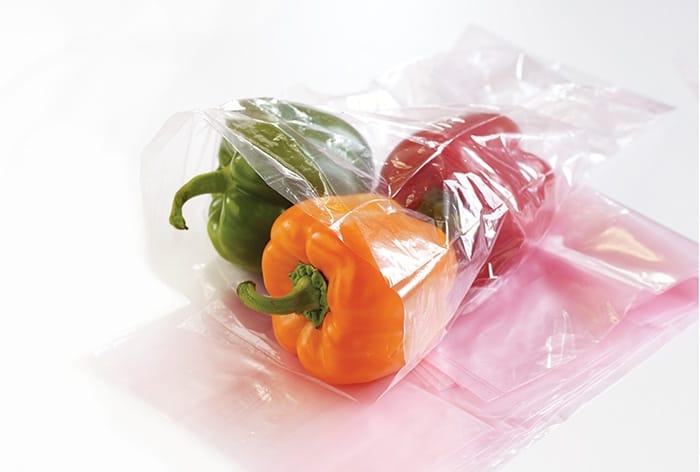
"Green bags" (which actually come in many colors) sold on infomercials are composed of zeolite, a silicate compound with a porous chemical structure. Companies that manufacture these bags claim the porous structure absorbs ethylene, the ripening agent released by fruits and vegetables, thus extending produce life.
Despite these claims, many consumer advocacy sites have not confirmed the promised results (such as "keeps [produce] fresh up to 30 days").
Plant matter produces ethylene at different levels, and fruits and vegetables react differently when exposed to this gas.
Produce that produces ethylene at a high level — such as apples, avocados and peaches — should not be stored next to foods that are sensitive to ethylene, like broccoli, leafy greens and cucumbers. Vegetables and fruits like strawberries may develop mold faster in these bags due to increased condensation and moisture.
Check with your local grocer or produce manager for the best way to store produce.
